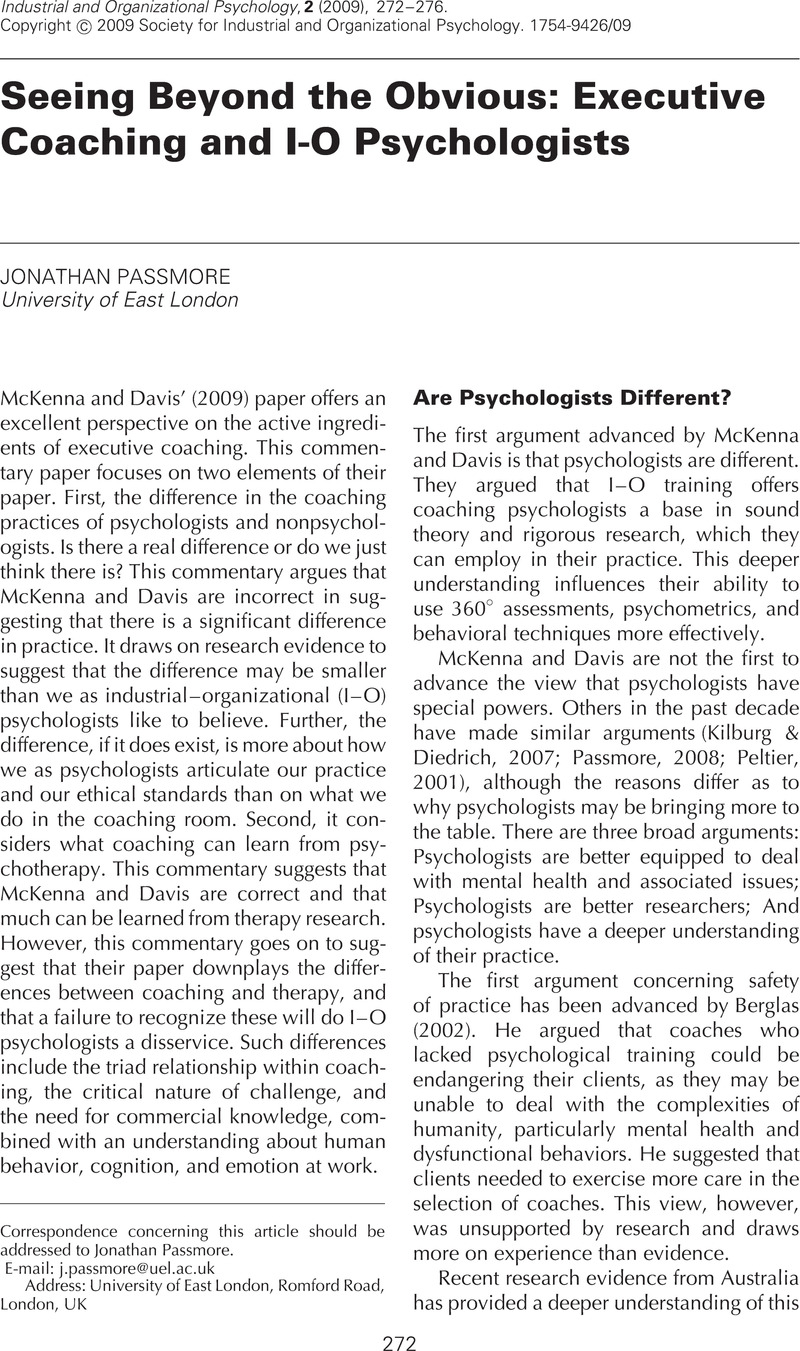Crossref Citations
This article has been cited by the following publications. This list is generated based on data provided by Crossref.
McKenna, D. Douglas
and
Davis, Sandra L.
2009.
What Is the Active Ingredients Equation for Success in Executive Coaching?.
Industrial and Organizational Psychology,
Vol. 2,
Issue. 3,
p.
297.
Duffy, Mark
and
Passmore, Jonathan
2010.
Ethics in coaching: An ethical decision making framework for coaching psychologists.
International Coaching Psychology Review,
Vol. 5,
Issue. 2,
p.
140.
Passmore, Jonathan
2010.
A grounded theory study of the coachee experience: The implications for training and practice in coaching psychology.
International Coaching Psychology Review,
Vol. 5,
Issue. 1,
p.
48.
Augustijnen, Marie-Therese
Schnitzer, Gila
and
Van Esbroeck, Raoul
2011.
A model of executive coaching: A qualitative study.
International Coaching Psychology Review,
Vol. 6,
Issue. 2,
p.
150.
Athanasopoulou, Andromachi
and
Dopson, Sue
2018.
A systematic review of executive coaching outcomes: Is it the journey or the destination that matters the most?.
The Leadership Quarterly,
Vol. 29,
Issue. 1,
p.
70.
Hinse, Eliane
and
Mathieu, Cynthia
2022.
Le coaching de gestion et la satisfaction au travail ; liens entre le coaching, le leadership et la satisfaction au travail.
Gestion 2000,
Vol. Volume 38,
Issue. 6,
p.
165.
Moin, Tia
Giraldez-Hayes, Andrea
Stopforth, Marie
Lynden, Jenny
and
Rees-Davies, Laura
2023.
Who is a coach and who is a coaching psychologist? Professionalising coaching psychology in the United Kingdom.
The Coaching Psychologist,
Vol. 19,
Issue. 1,
p.
4.
George, Andrew J. T.
and
Rose, Susan
2024.
Been around the block: Is the prior experience of coaches in the workplace helpful?.
Coaching: An International Journal of Theory, Research and Practice,
p.
1.



